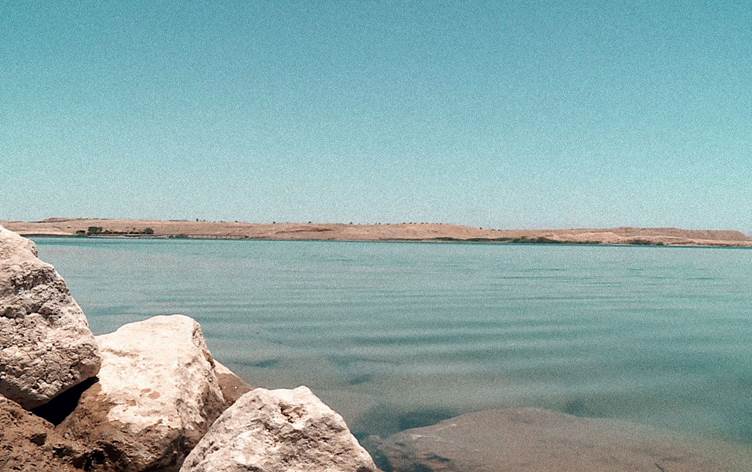ERBIL, Kurdistan Region - The water flowing into the Alwan dam in Khanaqin has decreased sharply due to the presence of mud and silt, as well as Iran’s building of dams which has restricted the water flow, leading to only two cubic meters of water entering the dam daily.
The drop in water levels in the dam has impacted the local population in Diyala province’s Khanaqin as less supplies are available for drinking and bathing.
“The water in the dam is not enough for Khanaqin’s residents for the upcoming four months from summer to early winter,” Ahmed Wasen, Director of the Alwan dam, told Rudaw’s Hunar Hamid on Wednesday.
The residents do not have enough water to meet their needs during the hot summer in Khanaqin.
Locals have complained about the lack of water, which can sometimes last for up to 15 days, making it difficult to bathe. They have to buy water from a tanker truck which is difficult for many given their dire financial situation.
This situation is not unique to Khanaqin as water shortage is a serious issue across Iraq and the Kurdistan Region. Climate change coupled with low levels of rainfall and soaring temperatures have led to severe shortages.
Wasin previously told Rudaw in April that Iran had been taking most of the water from the Alwan dam which also crosses through the country.
Iraqi authorities have on several occasions warned that dams being built by Iran and Turkey contributed to the growing water crisis in the southern and central provinces of Iraq, as well as in the Kurdistan Region.
Around 600 dams had been built over the last 30 years by Iran, cutting or diverting river courses from its territory into Iraq.
This situation is not unique to Khanaqin as water shortage is a serious issue across Iraq and the Kurdistan Region. Climate change coupled with low levels of rainfall and soaring temperatures have led to severe shortages.
The drop in water levels in the dam has impacted the local population in Diyala province’s Khanaqin as less supplies are available for drinking and bathing.
“The water in the dam is not enough for Khanaqin’s residents for the upcoming four months from summer to early winter,” Ahmed Wasen, Director of the Alwan dam, told Rudaw’s Hunar Hamid on Wednesday.
The residents do not have enough water to meet their needs during the hot summer in Khanaqin.
Locals have complained about the lack of water, which can sometimes last for up to 15 days, making it difficult to bathe. They have to buy water from a tanker truck which is difficult for many given their dire financial situation.
This situation is not unique to Khanaqin as water shortage is a serious issue across Iraq and the Kurdistan Region. Climate change coupled with low levels of rainfall and soaring temperatures have led to severe shortages.
Wasin previously told Rudaw in April that Iran had been taking most of the water from the Alwan dam which also crosses through the country.
Iraqi authorities have on several occasions warned that dams being built by Iran and Turkey contributed to the growing water crisis in the southern and central provinces of Iraq, as well as in the Kurdistan Region.
Around 600 dams had been built over the last 30 years by Iran, cutting or diverting river courses from its territory into Iraq.
This situation is not unique to Khanaqin as water shortage is a serious issue across Iraq and the Kurdistan Region. Climate change coupled with low levels of rainfall and soaring temperatures have led to severe shortages.








Comments
Rudaw moderates all comments submitted on our website. We welcome comments which are relevant to the article and encourage further discussion about the issues that matter to you. We also welcome constructive criticism about Rudaw.
To be approved for publication, however, your comments must meet our community guidelines.
We will not tolerate the following: profanity, threats, personal attacks, vulgarity, abuse (such as sexism, racism, homophobia or xenophobia), or commercial or personal promotion.
Comments that do not meet our guidelines will be rejected. Comments are not edited – they are either approved or rejected.
Post a comment